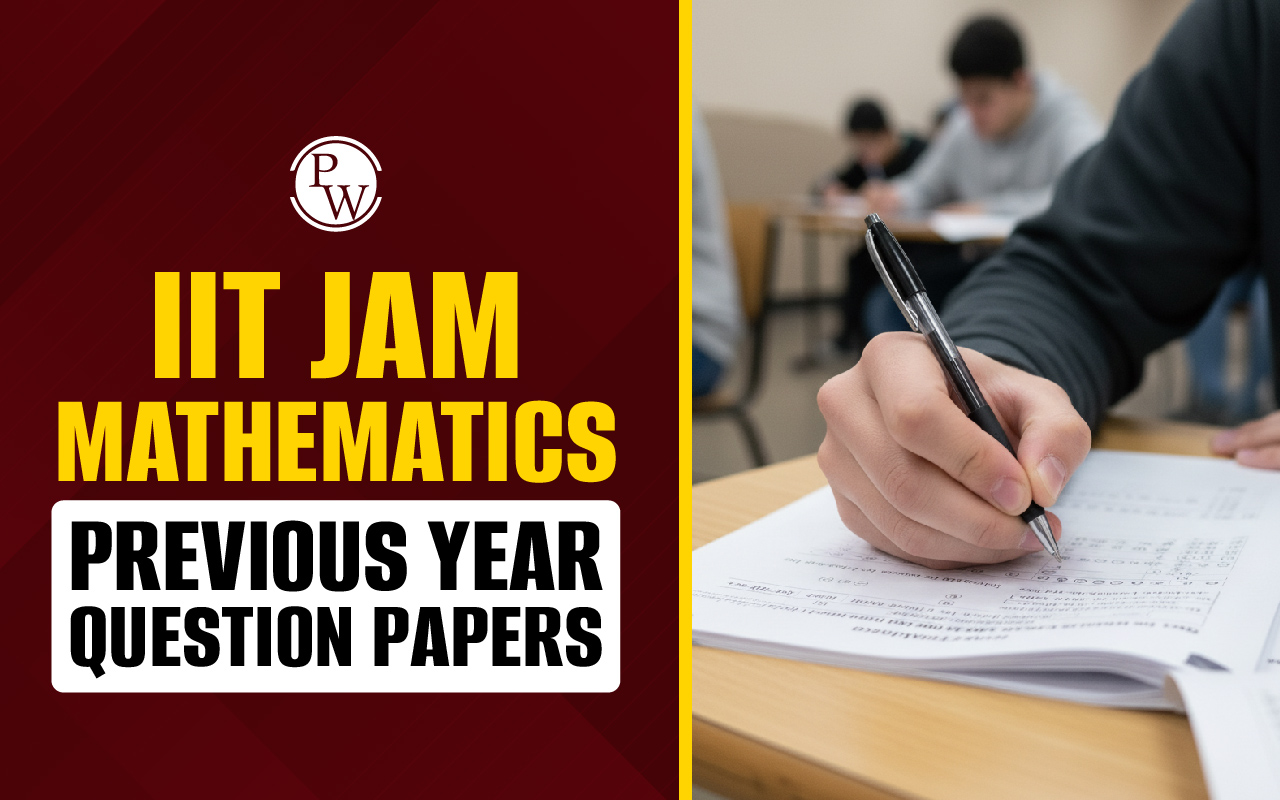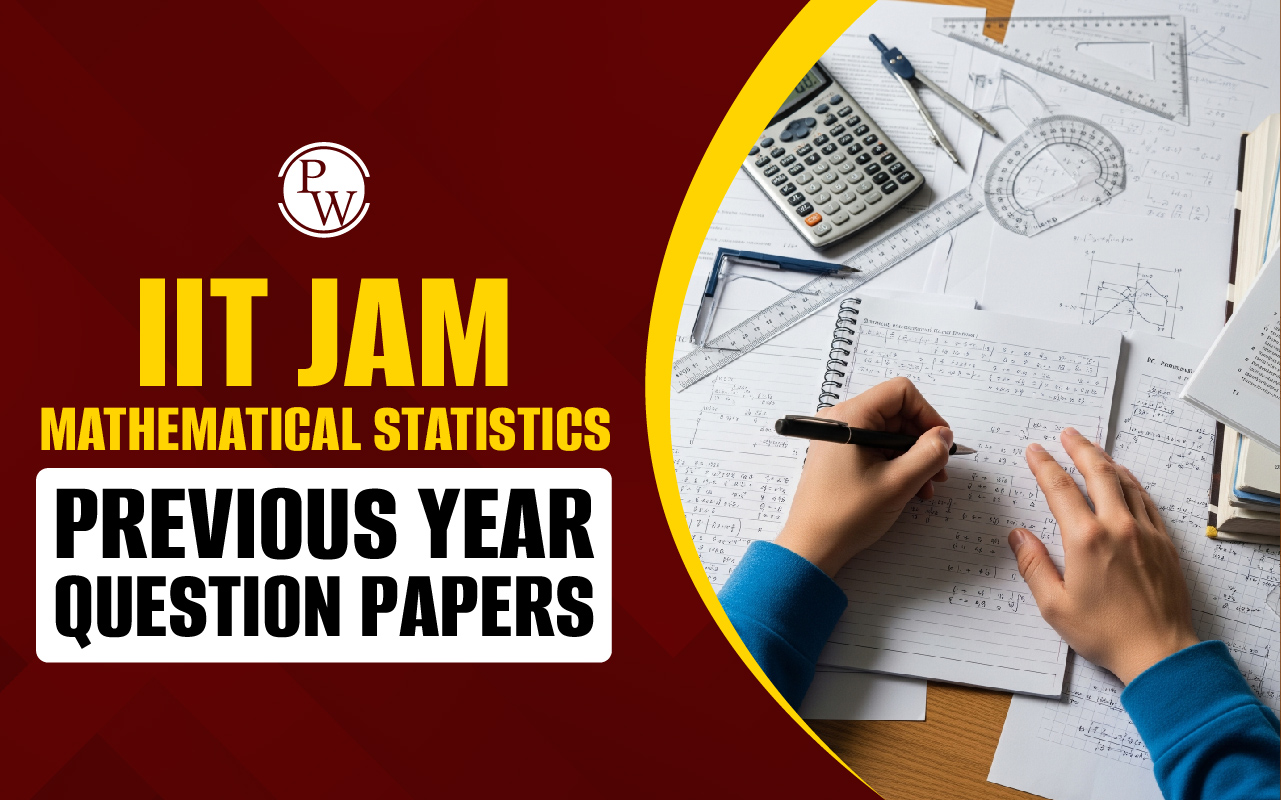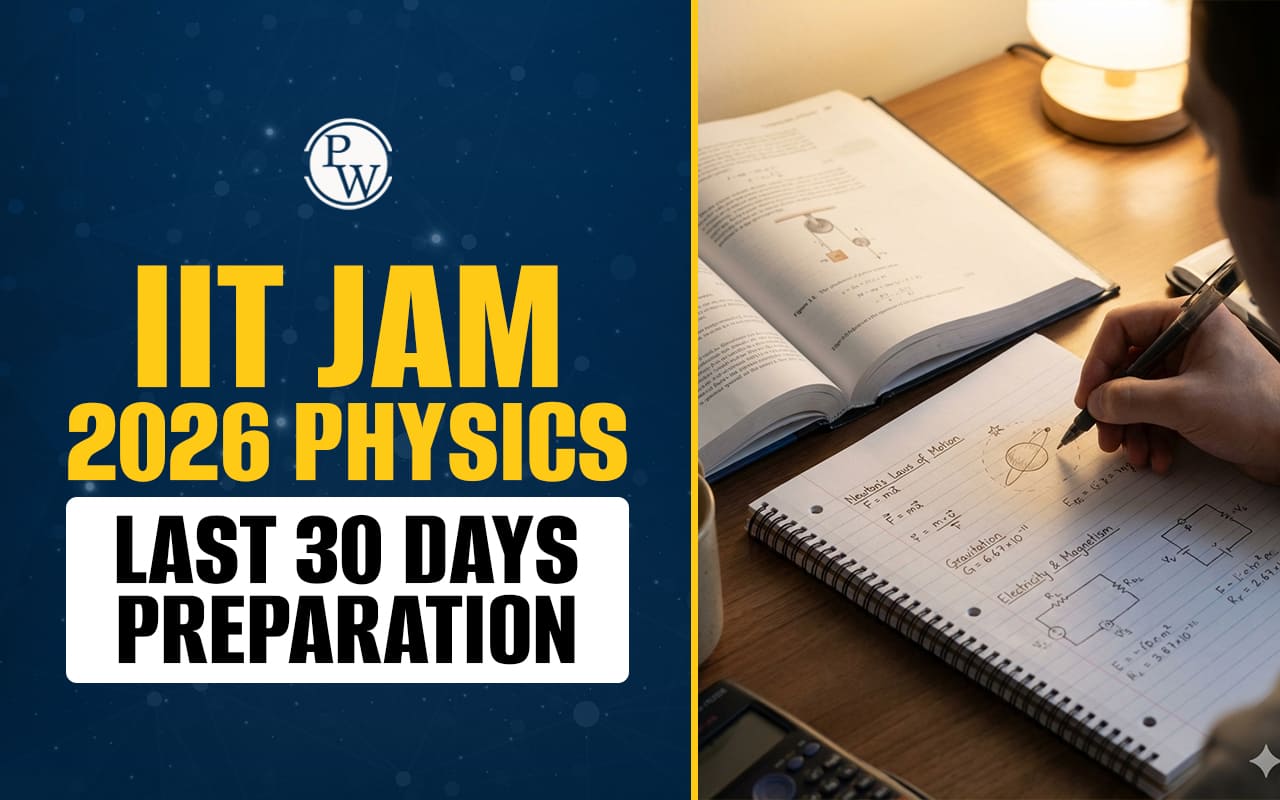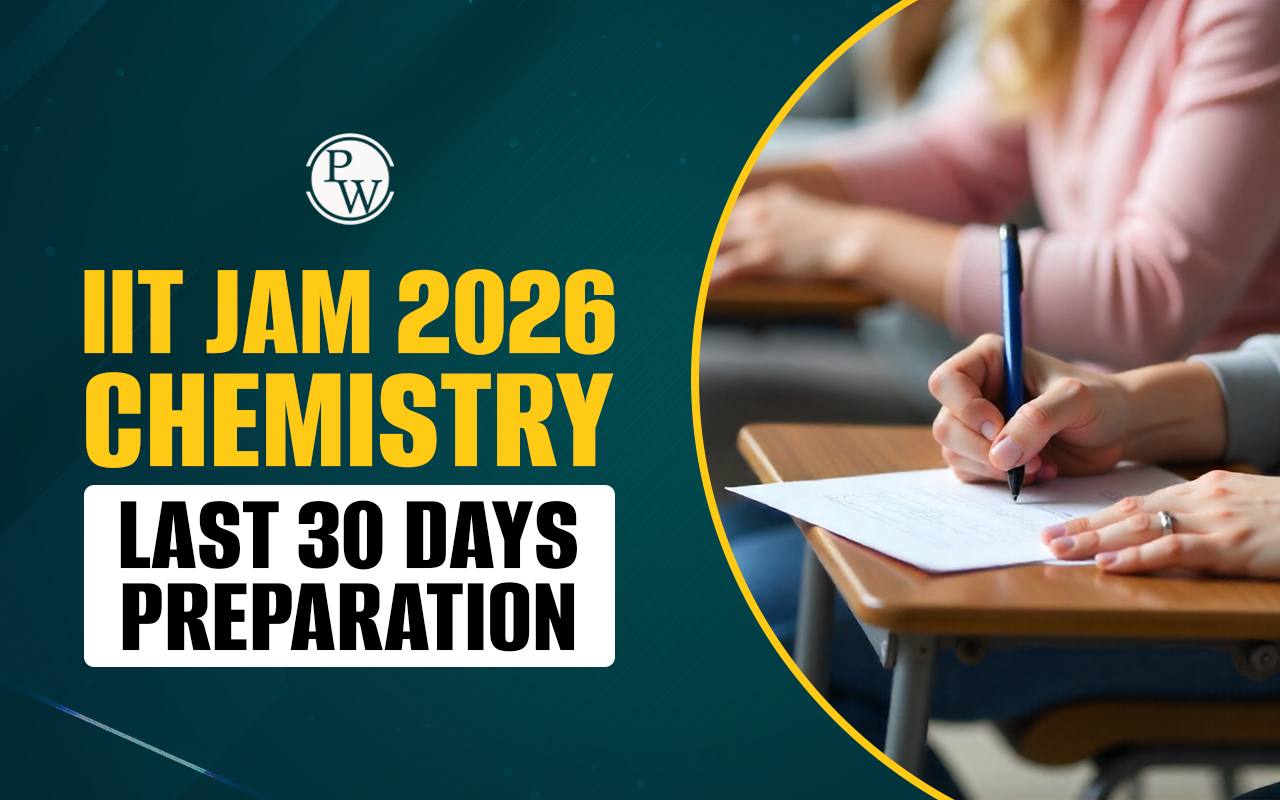
MSc Mathematics Programme Overview
MSc mathematics course offers a structured curriculum that combines theoretical depth with practical applications in Mathematics and allied subjects. Generally, the course is spread across four semesters in most universities in India for the MSc Mathematics course. In addition, the program provides students with comprehensive training in pure and applied mathematics.
While the MSc course duration and structure remain similar across institutions, the teaching methodology, elective choices, and research opportunities may differ. This diversity ensures that students not only gain conceptual clarity but also develop skills relevant to academic research, professional careers, and emerging domains such as computational sciences. Candidates can get a brief overview of the MSc Mathematics course:
| MSc Mathematics Programme Overview | |
|---|---|
| Particulars | Details |
| Course Name | Master of Science in Mathematics (MSc Mathematics) |
| Duration | 2 Years (4 Semesters) |
| Course Level | Postgraduate |
| Eligibility | B.Sc. in Mathematics or related discipline |
| Average Fees | ₹20,000 – ₹2,50,000 per year |
| Top Entrance Exams | CUET PG, IIT JAM, BHU PET, JNUEE, DUET |
| Average Salary (Starting) | ₹4 – ₹8 LPA |
| Career Roles | Research Scientist, Lecturer, Data Analyst, Engineer, Physicist |
Note: The program overview represents a standard framework adopted by most institutions. Exact details of the MSc Mathematics course, such as duration, electives, and salary prospects, may differ depending on the university and specialisation.
MSc Mathematics Eligibility Criteria
Admission to the MSc Mathematics program requires a strong foundation in mathematics at the undergraduate level. Candidates must typically hold a B.Sc. degree in Mathematics or an allied discipline like Statistics, Physics, or Computer Science with mathematics as a core subject. Most universities expect at least 50–60% aggregate marks, though requirements may vary depending on institutional policies. While some universities offer direct admission on a merit basis, leading institutions prefer entrance-based selection to identify students with a strong aptitude for advanced mathematics.
Note: MSc Mathematics Eligibility requirements are set individually by each university. Candidates are advised to check the official admission brochures of respective universities for precise criteria.
MSc Mathematics Entrance Exams
Entrance examinations play a vital role in admission to top universities offering MSc Mathematics. These exams are designed to test a candidate’s knowledge of undergraduate-level mathematics, logical reasoning, and problem-solving abilities. Conducted in online or offline modes, these tests generally consist of multiple-choice questions covering algebra, calculus, real analysis, and related topics. Success in the following entrance examinations enhances opportunities for securing seats in premier institutions:
| MSc Mathematics Entrance Exams | |||
|---|---|---|---|
| Exam Name | Conducting Body | Mode of Exam | Subjects Covered |
| CUET PG | National Testing Agency (NTA) | Online (CBT) | UG-level Mathematics |
| IIT JAM | Indian Institutes of Technology (IITs) | Online (CBT) | Mathematics |
| BHU PET | Banaras Hindu University | Online/Offline | Mathematics & UG-level concepts |
| JNUEE | Jawaharlal Nehru University | Online (CBT) | Advanced Mathematics |
| DUET | Delhi University | Online (CBT) | UG Mathematics topics |
Note: Entrance exams for admission in the MSc Mathematics course vary in difficulty and syllabus depending on the university. Exam patterns, schedules, and eligibility norms are subject to changes announced by the respective conducting bodies.
MSc Mathematics Syllabus
MSc Mathematics Syllabus remains almost the same in major universities of India.Here is the brief description of the MSc Mathematics Syllabus:
| MSc Mathematics Syllabus | |
|---|---|
| Category | Core Subjects |
| Pure Mathematics | Algebra, Real Analysis, Complex Analysis, Topology, Functional Analysis |
| Applied Mathematics | Differential Equations, Probability, Statistics, Computational Mathematics, Operations Research |
| Interdisciplinary / Advanced | Mathematical Methods, Numerical Techniques, Mathematical Physics, Optimisation Techniques |
Note: Students should always refer to their chosen institution’s official syllabus for detailed subject coverage in MSc Mathematics
Top MSc Mathematics Colleges in India
Several prestigious institutions in India offer MSc Mathematics provides their students with academic skills with strong research opportunities. Leading universities in India, such as IITs, Delhi University, Banaras Hindu University, Jawaharlal Nehru University, Presidency University Kolkata, and the University of Hyderabad are well known for their mathematics departments.
Furthermore, these colleges provide experienced faculty, advanced research labs, and industry collaborations to their students. Here, admission can be based on merit obtained in the entrance test.
Note: Rankings and reputation of colleges or universities may vary based on faculty expertise, infrastructure, and research output. Candidates should visit the official university websites to verify admission criteria and related information for a hassle-free admission process.
MSc Mathematics Fees in India
The MSc Mathematics fees in India vary considerably depending on the institution type. Or A government university can charge more affordable tuition, ranging from ₹20,000 to ₹60,000 per year, while private universities may set fees between ₹80,000 and ₹2,50,000 annually.
Despite the variation in MSc Mathematics fees in India, many institutions extend financial support through scholarships, merit-based fellowships, or need-based assistance. This feature ensures that deserving candidates, regardless of financial background, can pursue advanced studies in mathematics without facing major economic constraints.
Note: MSc Mathematics Fees range depends on whether the institution is government-funded or private. Actual fee structures are subject to periodic revision by individual universities. Students can check their websites before proceeding for the admission process.
MSc Mathematics Books
High-quality academic resources are essential for mastering the concepts in the MSc Mathematics. Here are some of the most popular MSc Mathematics Books that can help students enhance their knowledge base and understanding of the subject:
| MSc Mathematics Books | ||
|---|---|---|
| Book Title | Author(s) | Subject/Area |
| Higher Algebra | Hall & Knight | Algebra |
| Principles of Mathematical Analysis | Walter Rudin | Real Analysis |
| Complex Analysis | Lars Ahlfors | Complex Analysis |
| Topology | James Munkres | Topology |
| Linear Algebra Done Right | Sheldon Axler | Linear Algebra |
The above-mentioned books not only form the backbone of postgraduate studies but are also widely recommended for competitive examinations like IIT JAM, CSIR NET, and GATE. Hence, a combination of textbooks and research papers helps students strengthen their conceptual and applied knowledge.
Note: The recommended books may differ based on specialisation or faculty guidance. Msc Mathematics students should always confirm reading lists with their respective universities.
Jobs & Career Scope After MSc Mathematics
The career prospects for MSc Mathematics graduates are diverse and rewarding. Academic pathways include roles such as lecturer, professor, or researcher after completion of the course. Further, industries such as IT, finance, data science, and engineering provide opportunities as data analysts, statisticians, quantitative analysts, or actuaries.
Moreover, government organisations, think tanks, and research institutes also employ mathematics postgraduates for specialised projects. The program cultivates problem-solving abilities, logical reasoning, and computational skills, making graduates well-suited for both traditional and emerging professional domains.
| Jobs & Career Scope After MSc Mathematics | ||
|---|---|---|
| Career Path | Roles & Opportunities | Estimated Salary (₹ per annum) |
| Academia & Research | Lecturer, Assistant Professor, Researcher | 4 LPA – 7 LPA |
| Corporate Sector | Data Analyst, Quantitative Analyst, Statistician | 5 LPA – 10 LPA |
| Specialized Professions | Actuary, Operations Research Specialist, Risk Analyst | 6 LPA – 12 LPA |
| Government & Public Sector | Scientist, Policy Analyst, Research Officer | 5 LPA – 9 LPA |
| Emerging Domains | AI & Machine Learning Expert, Computational Scientist | 7 LPA – 14 LPA |
Note: Job opportunities in any field depend on skillsets, specialisation, and industry demand of the candidates. Salary packages and roles are indicative and may vary widely.
MSc Mathematics Future Scope
MSc Mathematics Future Scope can stretch as a well-established career in academics, research, banking and even the corporate sector. The future opportunities after MSc Mathematics extend well beyond immediate employment.
Many graduates pursue doctoral research (Ph.D.) to contribute to academic and industrial advancements. Whereas some students prepare for competitive examinations such as UGC NET, GATE, UPSC, or banking services, where a mathematical background proves advantageous. Furthermore, with the increasing reliance on data-driven technologies, artificial intelligence, and quantitative finance, the demand for professionals trained in mathematics is expected to grow steadily, offering long-term career stability and intellectual satisfaction to the MSc Mathematics graduates.
Note: Pursuing higher studies in the Mathematics subject can open further academic and research opportunities. However, future career paths depend on individual aspirations and industry trends.
M.Sc Mathematics FAQs
What is the full form of MSc Mathematics?
What is the eligibility for admission to MSc Mathematics programme?
Which entrance exams are required for admission to MSc Mathematics?
What are the career options after an MSc in Mathematics?
What is the average salary of a graduate after an MSc in Mathematics?










